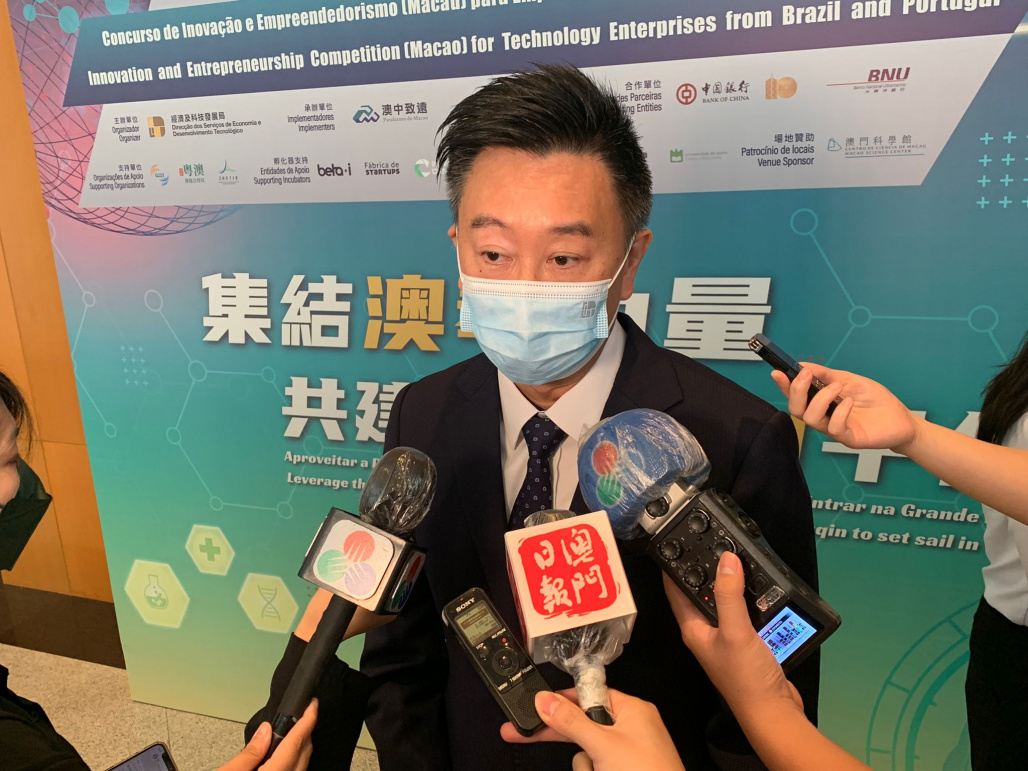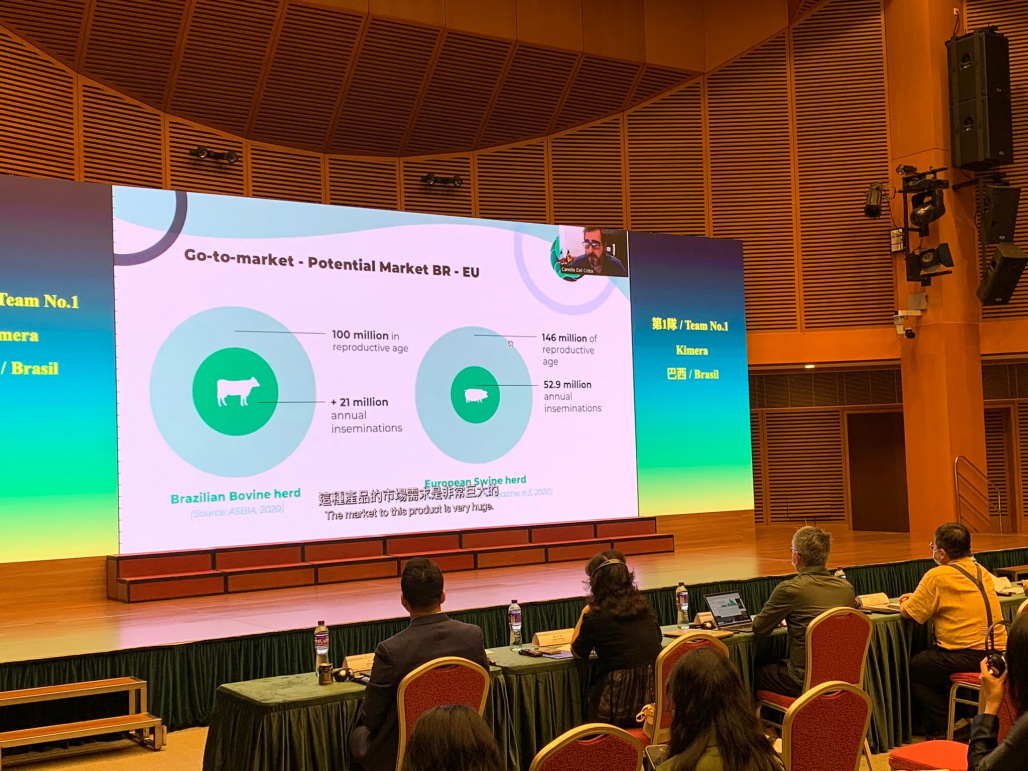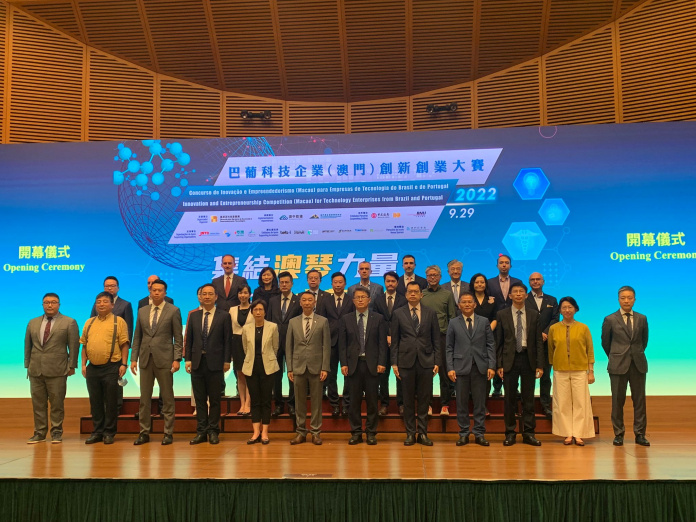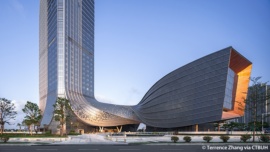The second edition of Innovation and Entrepreneurship Competition for Technology Enterprises from Brazil and Portugal was held on Thursday, aiming to unleash the city’s potential as a cooperation platform between China and Portuguese-speaking countries, particularly in the areas of technology.
Virtuleap, a health and education VR start-up from Portugal, was picked as the champion by an eight-strong judging panel formed by representatives from universities, investment funds and banks from Macau and Mainland China. The winner received a prize of MOP150,000 (US$18,750).
Following the success of the inaugural edition last year, the competition—organised by the Macau Economic and Technological Development Bureau (DSEDT)—focused on the themes of healthcare and new materials this year and attracted the participation of 14 start-up projects recommended by business incubators and institutions in the two Portuguese-speaking countries.
Che Weng Keong, Head of Technology Department of DSEDT, remarked that the themes of the contest this year match the latest development of industries in Macau, Hengqin and the Greater Bay Area, while showcasing the technological power of Brazil and Portugal.
Compared with the 2021 edition last year, one of the biggest changes of the contest this year is that the winners were immediately arranged to meet the relevant investors and funds from Mainland China after the announcement of the results on Thursday, he pinpointed. `
“The major goal of this competition is to help them [the start-ups] establish a presence in Macau, the Guangdong-Macau In-depth Cooperation Zone in Hengqin, and the Greater Bay Area,” he said.

In regards to the latest development of the winners of the contest last year, Mr Che said they have helped these projects to connect with investors and relevant companies in the mainland and to participate in various technological exhibitions in the region.
“But these exchanges have so far happened online only given the COVID-related [travel restrictions]. We will continue to follow up their cases,” he added.
The official also indicated the Macau government is expected to sign a pact with the counterparts in Hengqin and Zhuhai, under the support of the Chinese Ministry of Science and Technology, to establish the so-called Centre for Technological Exchanges and Cooperation between China and Portuguese-speaking Countries within this year to facilitate the exchanges in related fields.
Stepping stone
Prior to the announcement of the result on Thursday, representatives from the 14 start-ups made a last-minute pitch to the judging panel online before a decision was made. All the representatives were not able to attend the contest in person in Macau over the COVID-related travel restrictions.
Besides Virtuleap, a healthcare project W3 Care from Brazil was the first runner-up and entitled to a prize of MOP100,000, while another Brazilian healthcare start-up Yosen was the 2nd runner-up and received MOP80,000 in prize. The Greatest Potential for Development in the Greater Bay Area Award and the Greatest Potential for Transfer of Technological Value Award, each with a prize of MOP50,000, went to ByMyCell, a Brazilian project in the field of environmental protection, and Portuguese company R5m Marine Solutions, which specialises in offering engineering solutions for coastal and offshore maritime challenges, respectively.

The champion of this contest, Virtuleap has developed an app called Enhance VR, which combines neuroscience and virtual reality to help address cognitive illnesses and learning challenges though cognitive training games. The start-up has just won the best startup at the Asia Healthcare Innovation Summit held in Hong Kong earlier this month with a prize of US$500,000 (MOP4 million).
Amir Bozorgzadeh, co-founder and CEO of Virtuleap, said on Thursday that Enhance VR, which is available in five languages including Mandarin Chinese, now has about 45,000 users, and 5 per cent of the users opting for Mandarin Chinese.
Through the opportunities arising from winning the prizes at the start-up contests in the region in recent times, he hopes to understand more about the Chinese market and aims to set up an office in the region by the end of this year or next year. He added the start-up is now also looking for potential partners and investors in the Chinese market and the Macau contest might help advance its development.
Jamil Cade, founder and CEO of the first runner-up W3 Care, also said he hopes to establish connections with more Chinese companies and might set up a representative office in Macau in the future.
“China is the biggest market in the world,” he said. “Winning [a prize] in this competition is a first step for us [to enter the market].”





















